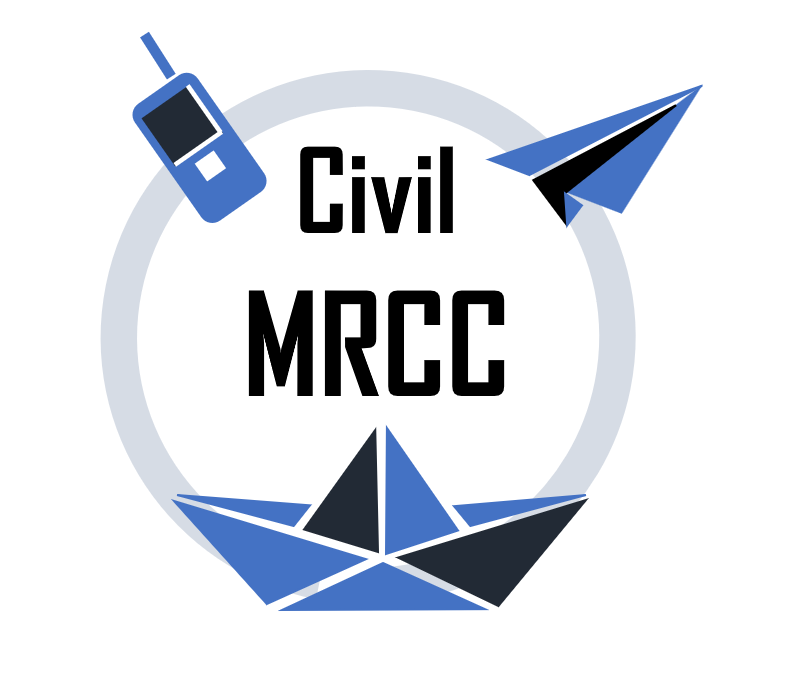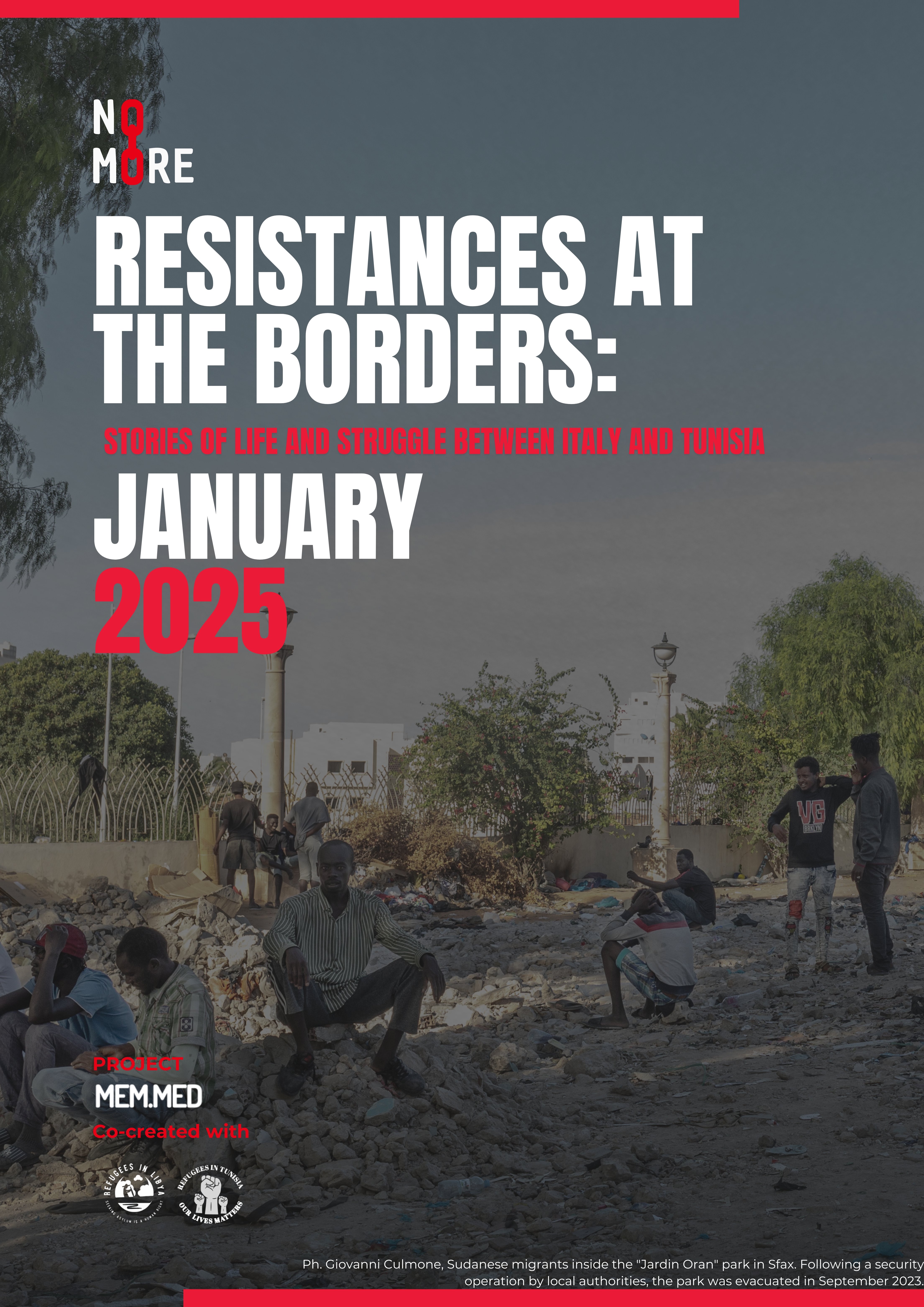With 2,308 Tunisian nationals deported from Italy in 2022 (1,872 in 2021), representing 59% of the total number of deportees, followed by Albania and Egypt, with 518 and 329 people respectively, Tunisians arriving in Italy are confronted with a violation of their most basic right, international protection.
In 2011, a bilateral agreement was signed between Tunisia and Italy designed to carry out mass expulsions of Tunisian nationals arriving by boat on Italian shores. Like the majority of agreements signed between Tunisia and the European Union and its member states, this agreement gives unequal and inequitable access to the right of freedom of movement. Another agreement was signed in 2020, which would allow Italy to expel almost twice the number of Tunisians, i.e. 80 people a week.
After the coup d’état of July 25, 2021, the political situation in Tunisia is increasingly dangerous and worsening by the day. Arrests and ongoing repression of political opponents, activists, trade unionists and journalists, ever-intensifying police violence and the criminalization of the LGBTQ++ community facing systematic and daily violence makes Tunisia an unsafe country of origin.
Tunisian nationals arriving by boat to Italy are all stigmatized and as soon as they arrive, they are sorted in big groups solely based on their nationality without any assessment of their individual case throughout their “stay” in Italy. They receive no or partial information about their rights in Italy, as well as the reason for their detention and the outcome of their case. Tunisian migrants do not benefit from an appropriate and neutral translation, knowing that most of them do not speak Italian and that the only people they can speak with are translators.

Demonstration for Wissem Ben Abdellatif, Photo: Silvia Di Meo
Marwan* a young Tunisian man who was recently deported from Italy after spending one and a half months in the Trapani Detention Center, emphasized the fact that during the time he spent in the CPR of Trapani and Center of Pantelleria he never received any valuable information.
“ At first when I arrived in Pantelleria, it was my first time after several attempts, the only thing the translator at the port asked me about was the trip organizer and how we reached Italy. During the 8 days of my stay in the Pantelleria Center, I have seen the translator only once he brought me a phone to call my family and informed me that as a Tunisian I can’t ask for asylum and therefore it is unnecessary that I even ask about it because they will anyways not care about what I ask for. No one ever told me about my rights although the center was not crowded and we were only 75 people there.
In Trapani as well, I have met several translators, not only they told me on several occasions that as a Tunisian I do not have the right to seek international protection but also whenever I ask them about the reason of our detention, when will we go out of detention and if we will be deported or not they do not give us any information. I remember very well the day we went to an office where there were police officers and they asked us to sign papers, although the papers were in Italian and Arabic, but not only we had no time to read it but also when I asked I would like to read it the translator told me just sign it, I asked what if I don’t sign it, she sarcastically answered, “Don’t worry, even if you will not sign it we will sign it on your behalf and with your name.”
Concerning the conditions inside the center and the treatment they face by officers working there, Marwan said that when he first entered Trapani center he felt like he was entering a prison.
“ Since they did not inform me where I was heading to I thought I was going to a prison, from the outside there were 3-4 meters long walls, inside it was all cages and people were detained inside these cages. On the first day of my arrival from Pantelleria, at around 11 pm, and after being awake since 6 am to leave from Pantelleria, they put me in a room with 30 people, gave me a mattress and told me to just wait. On the same day and after forcibly giving my fingerprints at around midnight, took everything I had on me and took me to a small room with 4 other people. The room only had a small window and a toilet. We were stuck in that room without going out or almost seeing any light. Even for the phone when I ask to make a call to my family or the lawyer, whether they refuse or they tell me we will take you and then never do it and keep me waiting. On the rare occasion where I can go out for a while and make a phone call, I am escorted with 8 cops. The food was disgusting and you always see people trying to commit suicide almost on a daily basis, the situation created more problems between the migrants themselves and there were always tensions and fights.“
According to a study conducted by ASGI, FTDES and ASF, in 202188.2% were victims of abuse within the CPR, and in the majority of cases (82.3%), this abuse was caused by CPR staff. People in the repatriation centers and mainly Tunisians face verbal and physical abuse in case they don’t want to sign papers or give their fingerprints.
Such was the case of Wissem Ben Abdellatif, one of the few documented cases, who lost his life in Rome’s San Camillo hospital after being transferred from the Repatriation Center of Rome. His death from a heart attack may have been caused by the use of restraint measures during his hospitalization. The same study showed that 32% of the people interviewed said they had been denied access to a doctor.
Marwan remembers once how a man fainted and was shaking on the floor in front of the police and that it took them 15 minutes to react to see if he was really fainting or pretending, just to leave the center.
Although Marwan had a different experience as he did not need a medical transfer, he nevertheless said that on a daily basis, the doctor of the CPR gave them anti-anxiolytic and anti-stress pills without a prescription or a proper medical check.
“ He was giving me up to 4 pills a day, and not only me but everyone else in the CPR, even minors. The pills drain you from any energy you have, you have bad trips and give you nightmares. I had no other choice than to take them, imagine being detained in a small room, without seeing the sun for more than a month, without knowing what will happen to you and without knowing when you will be released, all you want is that the time passes quickly and that was the only option we had. These pills they were also a “solution” for them, they keep everyone calm and therefore nobody protests against this unjust detention “
Marwan perceived the journey and the deportation as a violence and an unjust act that he still cannot process and understand.
“ I only was informed that I was getting deported few days before my actual day of deportation, I was handcuffed and taken to the airport of Trapani, where I met the consular of Tunisia who only asked me where I am from, I said the name of my city, then she ordered to take me to the airplane. We were around 40 and each of us was escorted by two police officers and handcuffed all along the flight. I still do not understand what happened to me and why, I wonder why do I have to go through all of this, I have tried several times before through different routes, I was intercepted at sea by the Tunisian Coast Guards, I was deported from Serbia and and I applied for different Schengen visas without any success. Now I know I cannot enter Schengen area for three years, but I will try again until I make it one day. “
These repatriation centers – in which those detained face violence is a daily experience, have no access to basic rights as migrants who have recently arrived in Italy, and go through opaque procedures while often given wrong information given by translators – can only result in severe psychological distress. Those, such as Tunisians, fleeing unstable social, economic and political situations and unsafety, face circumstances in which their right to international protection is not even guaranteed once in Italy.
By Alarm Phone Tunis and Alarm Phone Palermo



